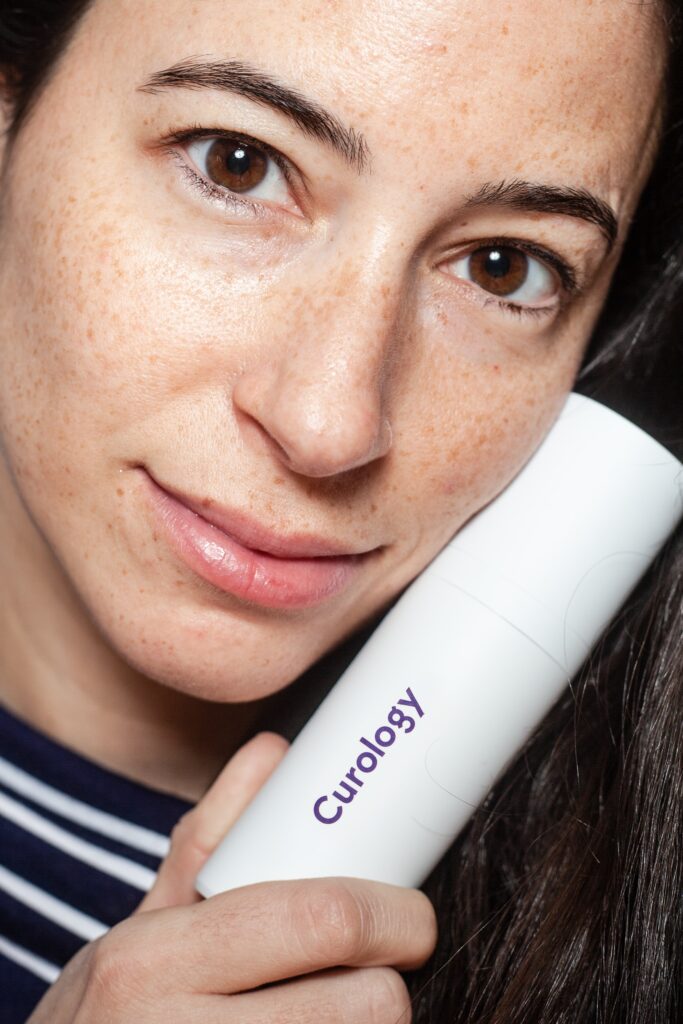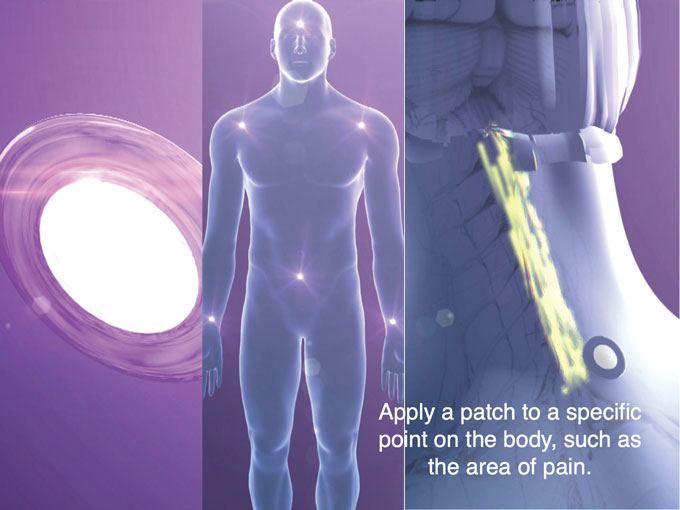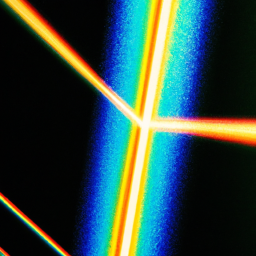Are you struggling with skin conditions like psoriasis or eczema? If so, you’re not alone. Many individuals experience the frustrating symptoms caused by these conditions, such as itching, redness, and inflammation. However, there may be a solution that can help alleviate your discomfort – phototherapy. This article explores how phototherapy has emerged as a promising treatment option for individuals living with psoriasis and eczema, offering hope for a clearer, healthier complexion.

Types of Phototherapy
UVB Phototherapy
UVB phototherapy is a treatment option for various skin conditions, including psoriasis and eczema. This type of phototherapy involves exposing the affected skin to ultraviolet B (UVB) light. The UVB light penetrates the skin and slows down the rapid growth of skin cells, which is a common characteristic of psoriasis and eczema. UVB phototherapy can be administered in different ways, including full-body treatment or targeted treatment for specific areas. It is a safe and effective treatment option for many individuals.
PUVA Phototherapy
PUVA phototherapy, also known as psoralen plus ultraviolet A (PUVA) therapy, combines the use of a medication called psoralen with exposure to ultraviolet A (UVA) light. Psoralen makes the skin more sensitive to UVA light, enhancing the effectiveness of the treatment. This type of phototherapy is particularly effective for psoriasis and other skin conditions that have not responded well to other treatment options. PUVA phototherapy is usually administered in a controlled environment, such as a medical clinic, to ensure safety and optimal results.
Narrowband UVB Phototherapy
Narrowband UVB phototherapy is a variation of UVB phototherapy that uses a narrower spectrum of UVB light. The use of a specific wavelength of UVB light in narrowband UVB phototherapy has been found to be highly effective in treating psoriasis and other chronic skin conditions. This type of phototherapy is advantageous because it minimizes the risk of burning the skin and requires fewer treatment sessions compared to traditional UVB phototherapy. Narrowband UVB phototherapy is suitable for individuals with mild to moderate psoriasis or other skin conditions.
Excimer Laser Therapy
Excimer laser therapy utilizes a special type of laser that emits concentrated beams of UVB light. This therapy is particularly effective in targeting small, localized areas affected by psoriasis and eczema. Excimer laser therapy is highly precise and can treat specific patches of the skin without affecting the surrounding areas. This type of phototherapy is well-tolerated by most individuals and can provide significant improvements in the appearance and symptoms of psoriasis and eczema.
Understanding Psoriasis
Causes of Psoriasis
Psoriasis is a chronic autoimmune condition that affects the skin, causing the rapid formation of skin cells. The exact cause of psoriasis is unknown, but it is believed to be a combination of genetic and environmental factors. The immune system mistakenly attacks healthy skin cells, triggering an overproduction of new cells. This results in the characteristic red, scaly patches that are commonly associated with psoriasis.
Symptoms of Psoriasis
Psoriasis can present differently for each individual, but common symptoms include red and inflamed patches of skin, often covered with silvery-white scales. These patches can be itchy, painful, or even bleed. Psoriasis commonly affects areas such as the elbows, knees, scalp, and lower back, but it can appear anywhere on the body. In some cases, psoriasis can also affect the nails, causing changes in their appearance and texture.
How Phototherapy Treats Psoriasis
Phototherapy has been proven to be an effective treatment option for psoriasis. The exposure of the affected skin to UVB or UVA light helps to slow down the rapid growth of skin cells and reduce inflammation. This leads to a reduction in the appearance and severity of psoriasis symptoms. Phototherapy can be used as a standalone treatment or in combination with other therapies, depending on the severity of the condition. Regular phototherapy sessions can significantly improve the quality of life for individuals living with psoriasis.
Understanding Eczema
Causes of Eczema
Eczema, also known as atopic dermatitis, is a chronic skin condition characterized by dry, itchy, and inflamed skin. The exact cause of eczema is unknown, but it is believed to be a combination of genetic and environmental factors. People with eczema often have a weakened skin barrier, which allows irritants and allergens to penetrate the skin more easily. This triggers an immune response, leading to inflammation and the typical symptoms of eczema.
Symptoms of Eczema
The symptoms of eczema can vary from mild to severe and can include redness, dryness, itching, and the formation of small, fluid-filled blisters. Eczema commonly occurs on the face, hands, elbows, and the back of the knees, although it can affect any part of the body. In addition to the physical discomfort, eczema can also have a significant impact on a person’s emotional well-being, leading to feelings of self-consciousness and reduced quality of life.
How Phototherapy Treats Eczema
Phototherapy has been found to be an effective treatment option for eczema. The exposure of the affected skin to UVB or UVA light helps to reduce inflammation, alleviate itching, and improve the overall condition of the skin. UVA light combined with psoralen, known as PUVA therapy, has shown to be particularly effective for severe cases of eczema. Phototherapy can provide relief for individuals with eczema, allowing them to better manage their symptoms and improve their quality of life.
Benefits of Phototherapy
Effective Treatment for Chronic Skin Conditions
Phototherapy has proven to be an effective treatment option for chronic skin conditions such as psoriasis and eczema. It helps to reduce inflammation, control symptoms, and improve the overall appearance of the skin. Phototherapy can provide long-lasting relief for individuals who have not responded well to other treatments.
Minimizes Use of Topical Steroids
While topical steroids are commonly used to manage psoriasis and eczema symptoms, long-term use can have side effects. Phototherapy offers an alternative treatment that can reduce reliance on topical steroids, minimizing the risk of side effects associated with prolonged steroid use.
Versatility and Convenience
Phototherapy can be tailored to suit the needs of each individual. The treatment can be administered in different ways, ranging from full-body sessions to targeted treatments for specific areas. This versatility allows dermatologists to customize the treatment plan according to the severity and location of the skin condition. Additionally, phototherapy can often be done on an outpatient basis, making it a convenient option for many individuals.

Considerations Before Starting Phototherapy
Medical History and Assessment
Before starting phototherapy, it is essential to undergo a thorough medical history and assessment. This evaluation helps to determine if phototherapy is a suitable treatment option and to identify any potential contraindications. The dermatologist will consider factors such as current medications, previous treatments, and any underlying medical conditions.
Skin Type and Sensitivity
Individuals with different skin types may respond differently to phototherapy. Skin type and sensitivity play a role in determining the appropriate dosage and treatment plan. Dermatologists will assess the individual’s skin type to ensure that the treatment is optimized for effectiveness and safety.
Potential Side Effects
As with any medical treatment, phototherapy can have potential side effects. These may include temporary redness, itching, or dryness of the skin. In rare cases, individuals may experience more severe side effects such as blistering or burning. It is important to discuss potential risks and side effects with a dermatologist before starting phototherapy.
Preparing for Phototherapy
Consultation with a Dermatologist
Before embarking on phototherapy, it is essential to have a consultation with a dermatologist. During this consultation, the dermatologist will assess the severity of the skin condition, discuss treatment goals, and develop a personalized treatment plan. It is important to provide a comprehensive medical history and inform the dermatologist about any current medications or underlying medical conditions.
Skin Evaluation
A thorough evaluation of the skin is necessary before starting phototherapy. The dermatologist will examine the affected areas, taking note of their appearance, location, and severity. This evaluation helps in determining the most appropriate phototherapy technique and treatment schedule for optimal results.
Phototherapy Schedule and Commitment
Phototherapy usually requires multiple treatment sessions over a period of time. The dermatologist will discuss the treatment schedule and expected commitment required. It is important to follow the prescribed schedule and attend all sessions for the best possible outcomes.

Undergoing Phototherapy Treatments
Duration and Frequency of Sessions
The duration and frequency of phototherapy sessions can vary depending on the individual’s condition and the type of phototherapy being used. Some individuals may require daily treatments, while others may need treatments several times a week. Typically, each session lasts for a few minutes, with the duration gradually increasing over time to ensure the skin adjusts to the treatment.
Protective Measures During and After Treatment
During phototherapy sessions, it is essential to protect areas of the body that are not being treated from excessive exposure to UV light. This may involve covering certain areas or using protective measures such as goggles. After treatment, it is crucial to moisturize the skin thoroughly to prevent dryness and soothe any potential irritation.
Combination Therapy
In some cases, phototherapy may be combined with other treatment options to enhance effectiveness. This may include the concurrent use of topical medications or the integration of systemic medications alongside phototherapy. Dermatologists will determine the optimal combination therapy for each individual’s specific needs.
Effectiveness of Phototherapy
Success Rates in Treating Psoriasis
Phototherapy has demonstrated high success rates in treating psoriasis. Many individuals experience a significant reduction in symptoms, including a decrease in redness, scaling, and itchiness. Phototherapy can improve the overall appearance of the skin and promote long-term remission for many individuals living with psoriasis.
Success Rates in Treating Eczema
Phototherapy has also shown promising results in treating eczema. It helps to reduce inflammation, soothe itching, and improve the overall condition of the skin. While individual responses may vary, many individuals with eczema experience significant improvements in their symptoms and quality of life with the help of phototherapy.
Case Studies and Patient Experiences
Numerous case studies and patient experiences highlight the effectiveness of phototherapy in treating psoriasis and eczema. These accounts demonstrate the positive impact of phototherapy on individuals’ lives, from improved skin appearance to enhanced overall well-being. Reading about the experiences of others can provide reassurance and insight into the potential benefits of phototherapy.
Potential Side Effects of Phototherapy
Short-term Side Effects
Common short-term side effects of phototherapy may include temporary redness, itching, or dryness of the skin. These side effects are usually mild and transient. However, it is essential to monitor the skin closely and inform the dermatologist if any discomfort persists or worsens.
Long-term Risks and Precautions
Long-term use of phototherapy may carry some risks, including an increased risk of skin aging, sunburn, and an increased risk of skin cancer. However, these risks are generally minimal and can be mitigated by following proper sun protection measures and regular dermatological follow-ups. Dermatologists will provide guidance on precautions to minimize potential long-term risks.
Comparing Phototherapy with Other Treatment Options
Topical Treatments
Topical treatments, such as corticosteroids and moisturizers, are commonly used to manage psoriasis and eczema. While effective, topical treatments may have limitations in terms of areas they can reach and the potential for side effects. Phototherapy offers an alternative treatment option that can provide more widespread coverage and reduce reliance on topical treatments.
Systemic Medications
Systemic medications, such as oral or injectable medications, may be prescribed for severe cases of psoriasis or eczema that do not respond well to other treatments. However, systemic medications may have significant side effects and require close monitoring. Phototherapy can be a valuable adjunct to systemic medications or a standalone treatment option for individuals seeking alternatives to systemic therapies.
Biologic Therapies
Biologic therapies, also known as biologics, are a newer class of medications that target specific components of the immune system. Biologics have been highly effective in treating psoriasis and eczema but may be associated with significant costs and potential risks. Phototherapy can be a more cost-effective and accessible option for individuals seeking relief from their skin conditions.
In conclusion, phototherapy is a valuable treatment option for individuals living with psoriasis and eczema. UVB phototherapy, PUVA phototherapy, narrowband UVB phototherapy, and excimer laser therapy all contribute to the effective management of these chronic skin conditions. By understanding the causes and symptoms of psoriasis and eczema, individuals can make informed decisions about their treatment plans. The versatility, convenience, and high success rates of phototherapy make it an appealing option for many. However, individuals should consider their medical history, skin type, and potential side effects before starting phototherapy. By preparing adequately, undergoing treatments as scheduled, and following protective measures, individuals can experience the benefits of phototherapy firsthand. Whether used as a standalone treatment or in combination with other therapies, phototherapy has the potential to significantly improve the quality of life for individuals living with psoriasis and eczema.





